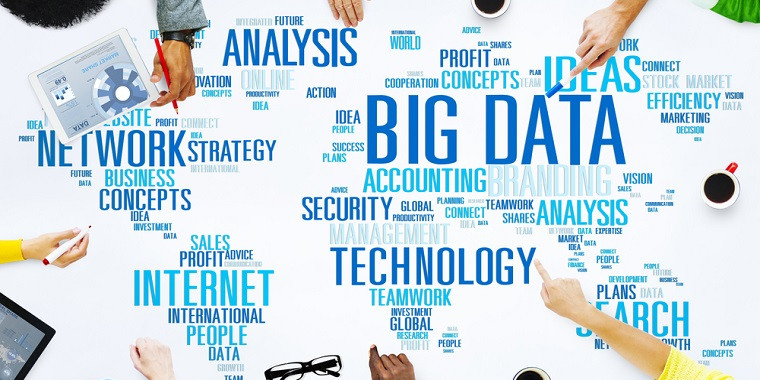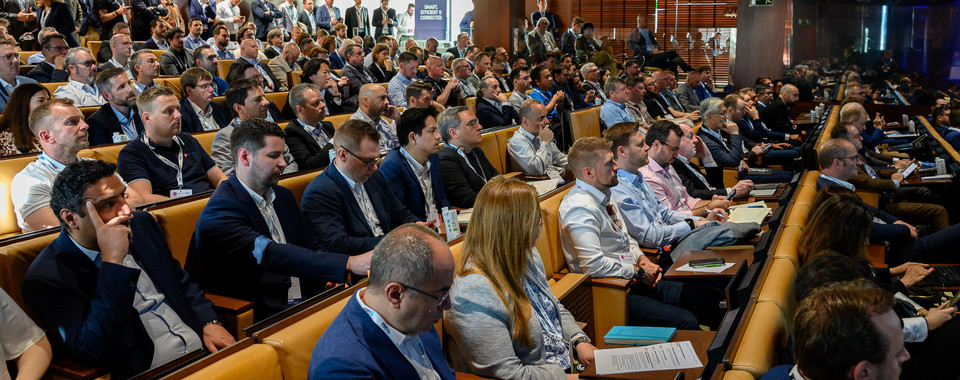I recently attended an Automotive Logistics conference and was disparaged to find that when it comes to Big Data, Industry 4.0, and the Internet of Things (IoT) the same conversations were being had today that were had a year ago. Though the presenters had changed, the message was still the same. The concepts are well received and spoken about, but the issues arise when you begin to look toward how to implement them into business practices. With many companies focusing on innovation, transparency, and collaboration, concepts such as Big Data, Industry 4.0, and IoT could provide the catalyst needed to reach their end goal: increasing the bottom line.
Breaking Down Big Data
The concept of Big Data can seem overwhelming at first if you only think of it in terms of data collection. If you collect every single data point that is available to you, then big data gets pretty big, scary big in fact. If all you are doing is collecting data, then you leave yourself in the exact same position that you started. The key to “Big Data” is taking the information that you have and applying analytics in order to turn it into what I will dub “Smart Data”. This is useful data that can be used to do your job better, be more efficient and solve problems.
Let’s break down the difference between “Big Data” and “Smart Data” by using an example. Tesco PLC has successfully implemented the use of Smart Data within their organization by collecting 70 million unique data points coming from its refrigerator units and feeding them into a dedicated data warehouse. The data points are then analyzed to keep track of performance, anticipate when the machines might need to be serviced and implement proactive maintenance measures in order to cut down on energy costs. Though 70 million data points might seem like a broad focus, Tesco PLC was able to identify data that was useful to them and then apply data analytics in order to achieve lower operational costs and potentially save over $30 million.
Industry 4.o and the Internet of Things (IoT)
Transparency, connectivity, and the ability to quickly react are all important functions of a logistics organization. With the introduction of Industry 4.0 and the Internet of Things, businesses are able to increase interconnectivity, not only between machines and programs, but also the business units they belong to. Through encouraging cooperation between sales, materials planning, production (including lineside equipment), and logistics, organizations are able to create a holistic operations overview.
Both inbound and finished vehicle logistics, for example, need to work hand in hand with a number of business units across an organization in order to ensure that goods can be produced, delivered, and ultimately sold. Industry 4.0 and IoT can help deliver a higher level of transparency and accountability to the automobile logistics world. By leveraging the current trends of connected cars, drone technology, and the ever increasing use of RFID, businesses can streamline and automate many of their logistics operations. Using RFID technology, cars can be tracked on terminal through small passive readers placed in each parking stall or accounted for by a drone flying overhead. This not only speeds up operations but also reduces the manpower needed in order to conduct vehicle counts or location verifications. This increased transparency would not only be an advantage to the logistics department, but would also benefit the sales division by allowing them to have a direct link to the current location and status of each car in order to more accurately predict delivery dates to customers and dealers alike.
Collaboration, Not Isolation
When the personal computer first came out you built your own computer from a kit, wrote your Operating System code, then created your own programs. Computer use still varies, whether it be photo editing, gaming, or sending out chain e-mails. That being said, when the average consumer purchases a new computer, they don’t take it home, erase the operating system, and begin writing a new system based upon their needs and preferences. They customize, buy add-on software, and configure the device to work for them. The same scenario applies to Big Data, Industry 4.0, and IoT. The push for more automation, analytics, and software connectivity has made it impractical for the internal IT division of a company to identify needs, map business processes and write out programs in order to satisfy a software need. Just as shipping logistics shifted from internally owned transportation to 3PLs, company’s IT systems can be increasingly sourced from third party software companies. These companies not only have the know-how and experience to deliver exceptional software systems, many of them are also extremely focused on smaller areas of business function, which allows them to build best of breed solutions that are frequently updated.
Closing Thoughts
Big Data, Industry 4.0 and IoT are more than just marketing buzz words. They offer viable solutions for many businesses as they continue to strive to be more innovative, run leaner, and lower operating costs. As seen in the Tesco PLC example, leveraging big data through analytics can provide a big pay off in the end. Tesco collected a lot of data, but what they did with it was the key to the success of the project. By identifying what the important data points were, Tesco was able to filter through the data and apply it to make informed business decisions. Industry 4.0 and the Internet of Things have the potential to connect technology in order to provide increased communication from machine to machine as well as business unit to business unit. By having increased data exchanges and operating outside of a “silo” environment, business units can work together to develop holistic transparency and help boost the bottom line. With a host of specialized software companies within the logistics sector the time is right to bring them in and tap into their experience in order to help you go from marketing buzzword to cost saving solution.
What are your thoughts on Big Data, Industry 4.0, and the Internet of Things? Are your current solutions developed in house or have you partnered with third party organizations?
---------------------------------
This blog was originally posted on the All Things Supply Chain Optimization blog.










